Election Watch – I’m Going To Vote
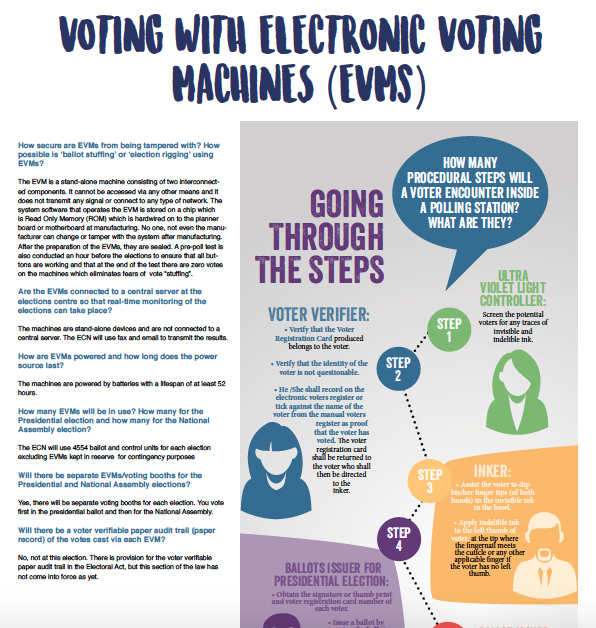
This Election Watch bulletin was compiled to cover Frequently Asked Questions (FAQs) about the 2019 National Assembly and Presidential Elections. It is produced as part of the IPPR’s Election Watch project with the support of the Canada Fund for Local Initiatives.
Technology in the 2019 Namibian Elections
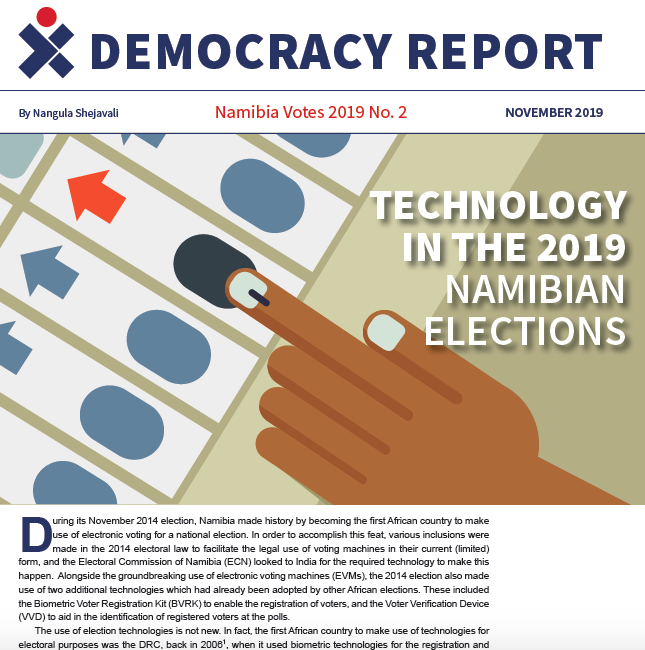
Despite using electronic voting machines at national and sub-national elections in 2014 and 2015, many voters and parties still hold strong suspicions about EVMs and the use of technology in general at polling stations. This briefing paper examines the use of various technologies at Namibian elections – from biometric registration kits through voter verification devices […]
Election Watch – Political Tolerance
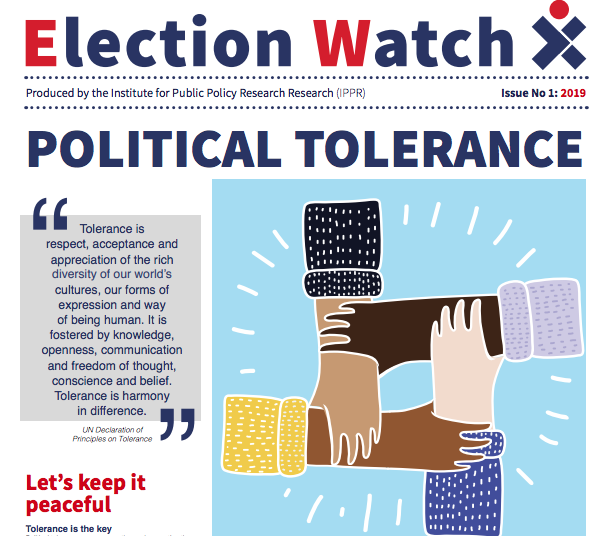
A bulletin that looks at the importance of political tolerance ahead of Namibia’s November 27 2019 national elections and includes a poster of the Code of Conduct for Political Parties.
A Critical Look at Party Manifestos for the 2019 Elections
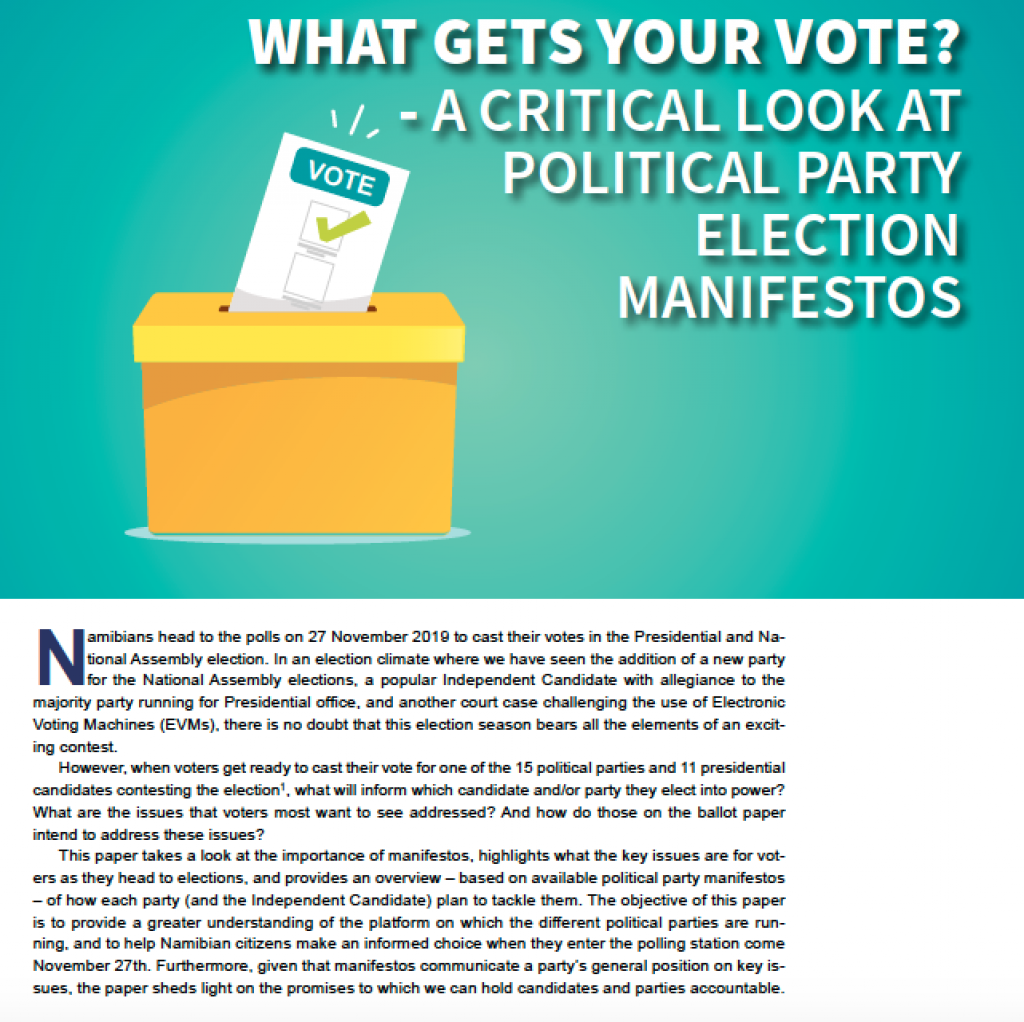
This paper highlights key issues in the manifestos made available by political parties and candidates before the November 27 2019 national elections in Namibia.
ACTION Media Release on Elections

A summary of issues raised by the ACTION Coalition of Namibia pertaining to the credibility of the forthcoming National Assembly and Presidential elections – including topics such as joint military/police patrols, lack of information from parties and candidates, misuse of government resources, zero tolerance for corruption, the code of conduct for political parties, the electronic […]
Namibian Political Finance
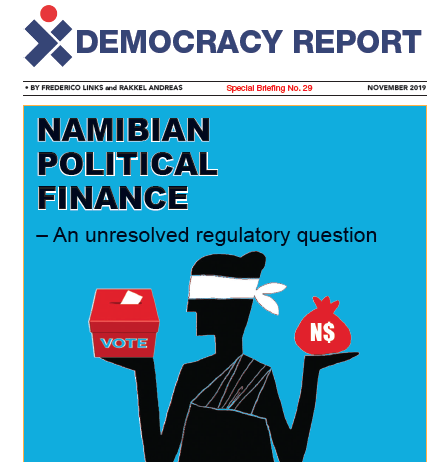
A new paper looking at whether the laws and regulations on the financing of political parties are working
IJG Business Climate Monitor September 2019
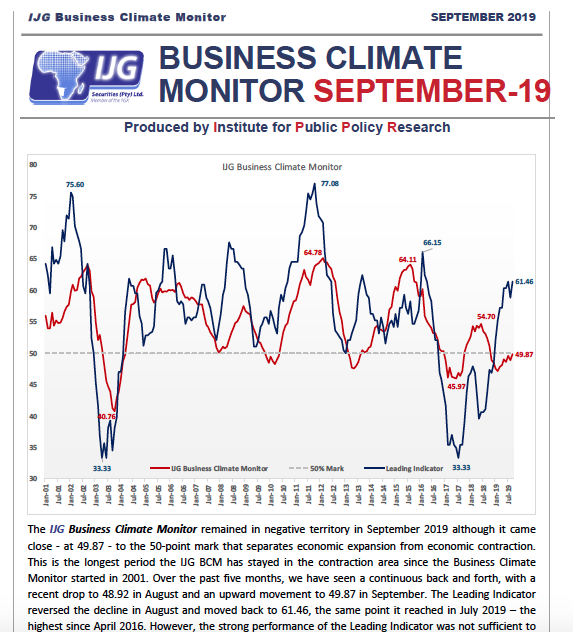
The IJG Business Climate Monitor remained in negative territory in September 2019 although it came close to the 50-point mark that separates economic contraction from economic expansion. This is the longest period the IJG BCM has stayed in the contraction area since the Business Climate Monitor started in 2001.
Making Sense of Namibia-China Relations

This new briefing paper seeks to understand the relationship between Namibia and China – by looking at areas such as trade, investment, debt, the extractives sector, SME activity, construction projects, and other bilateral issues.
Public Procurement Tracker Namibia

Two-and-a-half years since the Public Procurement Act was made operational, the procurement system remains mired in problems – not least a series of capacity issues. The IPPR’s latest Procurement Tracker bulletin outlines the capacity and transparency issues that are dogging the procurement law’s implementation.
IJG Business Climate Monitor August 2019
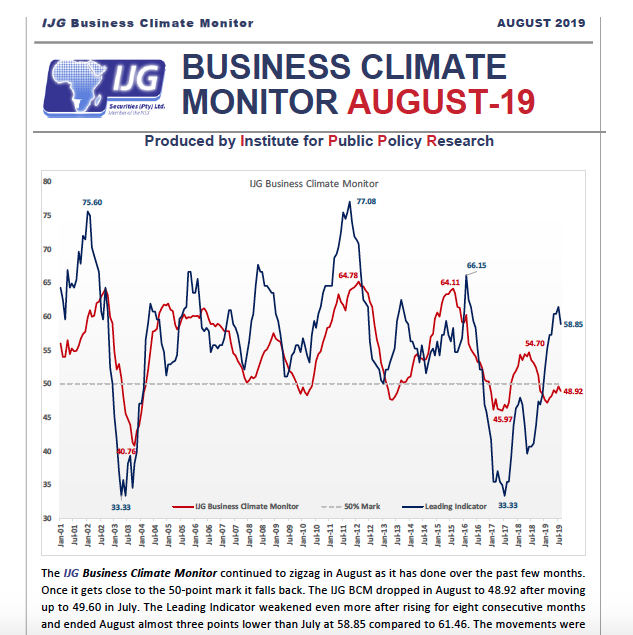
The IJG Business Climate Monitor for August 2019 continued to suggest that the economy has not yet gained sufficient momentum for a robust turnaround. The question remains: what can be a driver for economic growth in the short term?
